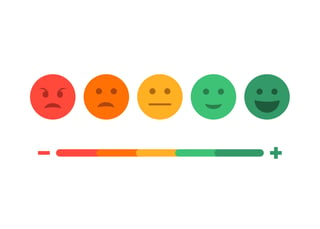 The fundamental mission of CultureWizard is really about communication and deepening our understanding of how culture influences nearly everything about how an individual, team, company – even a country – relates to the things they are seeing, saying and hearing. The first challenge to developing cultural fluency and a global mindset is overcoming the inherent ethnocentrism most of us grow up with. For instance, in Germany feedback between colleagues tends to be very direct, while in Japan, workplace feedback tends to be indirect with an emphasis on not causing embarrassment or undermining group harmony.
The fundamental mission of CultureWizard is really about communication and deepening our understanding of how culture influences nearly everything about how an individual, team, company – even a country – relates to the things they are seeing, saying and hearing. The first challenge to developing cultural fluency and a global mindset is overcoming the inherent ethnocentrism most of us grow up with. For instance, in Germany feedback between colleagues tends to be very direct, while in Japan, workplace feedback tends to be indirect with an emphasis on not causing embarrassment or undermining group harmony.
Compounding this, you can be certain that most Germans and Japanese think their way of interacting with colleagues is the “right” and “normal” way. That’s the tricky part about culture - it wires the brain to think that the way you do things in your native land is pretty much how things should be done the world over. Most sophisticated business people these days can intellectually grasp the concept of cultural variance, but when things are happening to you and you’re being dealt with in a culturally unfamiliar manner, it can be quite jarring on an emotional level. Just ask the smart folk at Daimler and Mitsubishi about that.
All of which brings me to the main point of this blog post: if communicating face-to-face and phone-to-phone between cultures is challenging, what happens when a new technology becomes the interface? According to Sean Dubberke, Director of Learning at RW3 CultureWizard, “As more and more companies adopt technologies like real time performance review apps, there’s bound to be some cultural missteps and misunderstandings along the way.”
As managers look to replace the oft-dreaded and less than effective annual performance reviews with more engaging and immediate ways of getting feedback to their team members, the demands of global leadership take on another dimension. “Cultures can be very different from one another when it comes to giving and receiving feedback,” adds Dubberke. “Part of leading with a Global Mindset is understanding the cultural nuances of effective feedback. Direct and in-direct communicating cultures, hierarchy, egalitarianism - cultures that value face and group harmony are all factors that have to be considered when providing feedback.” That’s a lot to keep in mind for a manager about to send off a group message to his team regarding what they did well and not-so-well at the meeting that just ended five minutes ago.
Given how technology and social media have influenced the behavior of millennials and their need for instant affirmation, a more immediate system of feedback might prove effective for this group, especially. However, as the workplace becomes ever more global and work teams span nations, cultures and time zones, spontaneous performance review apps are a tool that will need to be wielded wisely. Even as the world seems to grow smaller and more interconnected, cultural variance and preference is still a very real factor in the workplace and there is no one-size-fits-all model.
What do you think about performance review apps? Do you like the idea of getting immediate feedback from colleagues and managers? Do you think they’ll prove effective or will they only increase the chance for cultural misunderstandings?
We’d love to hear your thoughts.


